Assassin’s Creed Valhalla ending explained: How to get the «good» one
Skip to main content
When you purchase through links on our site, we may earn an affiliate commission. Here’s how it works.
(Image credit: Ubisoft)
This is an Assassin’s Creed Valhalla endings guide so as you’d expect, there are spoilers aplenty from here on in. We’ll say it again; stop reading here and click off the page if you haven’t finished Assassin’s Creed Valhalla yet or you don’t want to spoil the various endings for yourself. There are two vastly different Assassin’s Creed Valhalla endings and we’ve got the details on how to get both of them and what choices affect them.
Another spoiler warning. Do not scroll down any further if you do not want to read about the ending to Assassin’s Creed Valhalla.
Whether Sigurd stays or leaves at the end of the main story is based on five decisions you make during the story. These are all about whether Sigurd thinks you’re good enough to be Jarl of Ravensthorpe, and he’ll tell you which of your decisions he is pleased with at the end of the game.
These are the big choices and the ones he’ll judge you on:
- Stealing Styrbjorn’s cargo
- Starting a relationship with Randvi while she is still with Sigurd
- Punching Basim when they have a fight
- Denying Dag his axe for entry to Valhalla
- Contradicting Sigurd in his judgement of the settlement inhabitants
Doing three or more of these will lead to Sigurd leaving for Norway but if you have only done one or two, you’ll be fine and he’ll stay in the settlement with you for good. Plus, he breaks up with Randvi so you’re free to be in a relationship with her. Win. But what about the rest of that ending? Let’s take a look.
Assassin’s Creed Valhalla ending explained
(Image credit: Ubisoft)
Right. So if you’re left with a massive question mark over your head after the Assassin’s Creed Valhalla ending, you’re not alone. The first question though, well, second after ‘WTF?!’, is whether you have also completed both the Asgard and Jotunheim stories. I can’t say it will make everything crystal clear but it does help everything make a lot more sense if you have finished all of the story. The spinning looms of the mythical Nornir have been hard at work on destinies in this one.
I can’t say it will make everything crystal clear but it does help everything make a lot more sense if you have finished all of the story. The spinning looms of the mythical Nornir have been hard at work on destinies in this one.
This ending breakdown is going to cover the events in both the main story ending and the hidden ending in the mythical arc, so if you haven’t been back to see Valka since you first encountered Asgard, it’s time to go back to your Seer’s hut and finish the whole story. We’d advise powering up first as the final boss fight is a bit of a beast. Literally.
It’s worth saying now that this is the most lore heavy Assassin’s Creed in a long time and, as such, comes with bushels of Apples of Eden and brings back the Isu — or Those Who Came Before — centre stage. Writer Darby McDevitt hasn’t held back on any of the more fantastical elements of the AC franchise, namely that the world keeps trying to end and the only way to attempt to stop it is to keep using the technology of an ancient alien race who once upon a time enslaved humans and still keep popping up in digital and now human form.
(Image credit: Ubisoft)
Odyssey’s DLC was very Isu heavy as Layla experienced Isu simulations of various mythical realms, but Valhalla brings all of this back into the central story. We’re even back with the old school crew of Shaun Hastings and Rebecca Crane like it’s 2012 all over again. In Valhalla we’re still playing as ex-Abstergo agent Layla Hassan, but things are a little different as she jumps in and out of her DNA based Animus.
Given that I don’t have much time to explain, the TL;DR version is that she has a mood tracker on because she killed her friend Victoria with the ultra powerful, not to mention regenerative Staff of Hermes Trismegistus. A lot like Desmond, who murdered Lucy back in Brotherhood in the same way…
(Image credit: Ubisoft)
I’m going to try and break down the ending one question at a time, and one quote keeps swimming around in my head. There’s a few vital notes in Layla’s laptop if you’re trying to make sense of all of this — one sentence, from one of the messages that Layla actually heard from a recording by the Isu Aletheia all the way back in Origins, says “There is a point where the difference between simulated and real is meaningless. ” Think on this as we climb into the Animus for our Assassin’s Creed Valhalla ending breakdown, as there are more questions than answers but these are my musings so far.
” Think on this as we climb into the Animus for our Assassin’s Creed Valhalla ending breakdown, as there are more questions than answers but these are my musings so far.
What was happening in Asgard and Jotunheim?
(Image credit: Ubisoft)
Good question. Glad you asked. While it initially seemed like Eivor was just dreaming of Asgard and Jotunheim after drinking Valka’s potions, the truth is a little more convoluted. She is actually travelling to a time before the Isu originally fell to the Toba Catastrophe but in a Norse skin, thus Eivor is an Isu called Havi — the ancient name for Odin — and planning for the inevitable Ragnarok via a solar flare. Eivor is experiencing a Norse version of actual history, which means that Isu we have seen before, such as Juno and Aletheia are here too, just represented in Norse form.
Just to make sure we know we are in a version of reality, we even hear the voice of Ezio Auditore coming through a broken mirror as members of the Isu send him messages in the future. Confession — I had to watch the cutscene back as at the time I didn’t even realise it was him, but it’s very clearly Ezio asking ‘Who are you?’ after Gunlodr tells Odin (Eivor) what she has been doing. This Norse version of the Isu sees Odin, Tyr and co. drinking magical mead, in order to stay alive and be reincarnated through the centuries after their inevitable destruction at Ragnarok.
Confession — I had to watch the cutscene back as at the time I didn’t even realise it was him, but it’s very clearly Ezio asking ‘Who are you?’ after Gunlodr tells Odin (Eivor) what she has been doing. This Norse version of the Isu sees Odin, Tyr and co. drinking magical mead, in order to stay alive and be reincarnated through the centuries after their inevitable destruction at Ragnarok.
(Image credit: Ubisoft)
There are a few key indicators to make sure we know this is a version of an Isu reality. Hyrrokin explains that she, the Jotunheim King Suttingr and Gunlodr ruled together as Father, Mother and the Sacred Voice. This description of the Isu having the same rulers can be found in a file on Layla’s laptop, where she also talks about the six attempted preventions of Ragnarok, identical to that of the Isu. I was confused as to whether Hyrrokin or Gunlodr is the representation of Juno here, but given that Hyrrokin talks about mixing her husband’s ashes with her side of the mead, it would make sense that she is Juno and is therefore is creating The Sages who will occur through history.
(Image credit: Ubisoft)
The magical drink that Odin and Tyr use to survive the end of their world is Norse skin for Isu tech and in a Codex entry for the Jotunheim King Suttingr, Shaun Hastings notes that the mead seems “a metaphor for something else.” It’s not clear what this actually is, but it means that Eivor is actually a descendant, if not the full reincarnation of the Isu Odin centuries down the line.
This makes sense given Eivor’s struggle and boss fight with the one-eyed god at the end of the story, as she has literally been fighting with her own destiny. He is the demon on her shoulder as she destroys the Order of the Ancients, and he has been the one to whisper dark thoughts in her ear as she decides on pivotal moments in the story. Eivor as an Isu makes a lot of sense and very much explains her very useful Odin’s Sight. But…
Then who is Sigurd?
(Image credit: Ubisoft)
Well, Sigurd is also an Isu. In Eivor’s Norse version of reality, he is the Isu known as Tyr, the Norse God of War, so all that talk of him being a god by the evil Order of the Ancients member Fulke was actually spot on.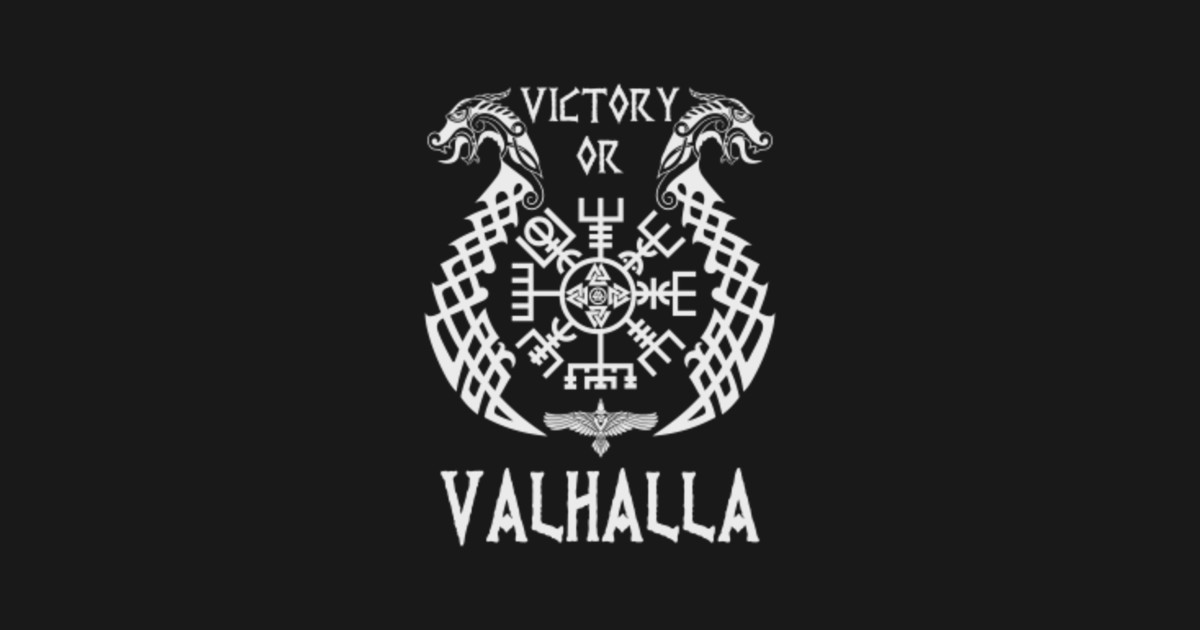 As we saw at the end of Jotunheim, Tyr too loses his arm, further reinforcing the destiny of Sigurd and how the threads of these stories are forced to repeat.
As we saw at the end of Jotunheim, Tyr too loses his arm, further reinforcing the destiny of Sigurd and how the threads of these stories are forced to repeat.
Sigurd is the one who leads Eivor into the Isu vault deep underground in Norway, after remembering the language of the Isu. He even says that his visions “are memories of a life once lived,” and shows Eivor the Apple of Eden that powers the shrine. His knowledge was ‘unlocked’ by Fulke torturing him, letting him see his own potential and ‘remembering’ his true role. His ‘Valhalla’ — last quote marks, I promise — is a gold-hued universe that Sigurd wills into existence when he and Eivor plug into the extremely pointy looking system deep below the ground.
(Image credit: Ubisoft)
This land of endless slaughter and mead is his version of paradise but as Eivor discovers, it’s not the perfect heaven that they both need. Her father might be there but he is just a creation, a simulated version of Eivor’s reality. After she decides to leave and convinces Sigurd, this is when she faces Odin who says she isn’t allowed to leave the simulation.
After she beats Odin, embraced by her family and friends, Eivor abandons the god. “With me you have wisdom and power,” he howls. “What more do you need?” She replies, “Everything else,” cementing her position in the human world and not the Isu simulation with him. Eivor and Sigurd’s escape brings them back to the real world, where things don’t get much better when Basim shows up.
Who is Basim and is he bad?
(Image credit: Ubisoft)
In short, probably… Despite revealing a sad past to Eivor around a camp fire earlier in the main story, it turns out that the Hidden One Basim wants Sigurd and Eivor dead. His campfire story wasn’t from the reality of the 9th century, it was from the eons before when they were Isu. It transpires that Basim is the reincarnation of Loki in Eivor’s Norse Isu past, meaning that he wants his fellow Isu dead in revenge for their treatment of his son.
“You widowed my destiny, Wolf-Kissed,” the Isu reincarnation says. “You broke all my hopes.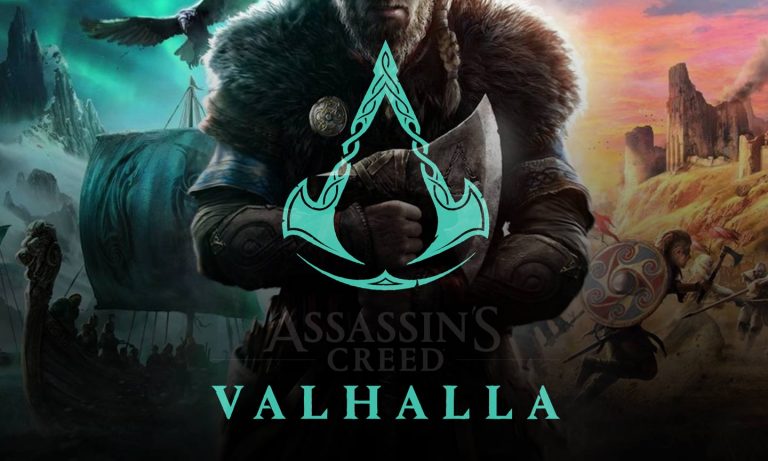 ” It turns out that the son Basim was talking about, was the wolf son of Loki in Eivor’s Norse Isu history. Odin and Tyr bound the wolf in the past, and Basim as a reincarnation of Loki is back to get revenge — he even delights at the wolf scars on 9th century Eivor’s neck. Interestingly, Odin specifically said in the ending of the Asgard arc that Loki wouldn’t get any of the useful reincarnation ‘mead,’ but it could be that Loki procured his from elsewhere.
” It turns out that the son Basim was talking about, was the wolf son of Loki in Eivor’s Norse Isu history. Odin and Tyr bound the wolf in the past, and Basim as a reincarnation of Loki is back to get revenge — he even delights at the wolf scars on 9th century Eivor’s neck. Interestingly, Odin specifically said in the ending of the Asgard arc that Loki wouldn’t get any of the useful reincarnation ‘mead,’ but it could be that Loki procured his from elsewhere.
Unfortunately, while beating Basim and plugging him into the Isu simulation system seems like a great idea, it turns out that Eivor has only pressed pause on Basim rather than killed him. Sigurd says that Basim lives but “in darkness,” where he waits for Layla to arrive more than a thousand years later.
What has happened to Layla and was that Desmond?
(Image credit: Ubisoft)
Meanwhile, in the modern day element, Layla’s trip into the Norwegian vault plugs her into the same simulation. Here, the Norse weavers continue to work away on the looms of destiny, in a shadow of the now broken Valhalla. Basim exists in the simulation, and he is the one who sent the message through the internet. From inside the underground Isu vault , his consciousness sent the Assassins the voice message saying to look into the memories of Eivor.
Basim exists in the simulation, and he is the one who sent the message through the internet. From inside the underground Isu vault , his consciousness sent the Assassins the voice message saying to look into the memories of Eivor.
Basim says he has been working with who he calls The Reader, and who we call Desmond, in order to prevent yet another catastrophe like the one that Desmond prevented in 2012. Interestingly, the Norse loom weavers disappear the minute Layla touches an Apple of Eden and Basim disappears, meaning that their job is done. Layla, as the so-called ‘Heir of Memories,’ was always meant to reach this place.
(Image credit: Ubisoft)
And then there’s The Reader. We’d recognise Nolan North’s voice anywhere, and that’s Desmond Miles as a white silhouette who has been working out all the possible futures of the world. Makes no less sense than Loki, eh? He never says that he is Desmond, but The Reader is trying to work out how to save the world with a series of calculations. Within a tree, all the data in the universe can be used to work out a way to slow the end of the world. Layla suggests looking at the alternate realities from back in 2012, in a reality where Desmond didn’t save the world to see if humans worked out a way to survive. Layla stays with The Reader in the simulation when she is told that her human body has no chance, meaning we’re definitely not going to be playing as her again. So long and thanks for the DNA-based memories, Layla…
Within a tree, all the data in the universe can be used to work out a way to slow the end of the world. Layla suggests looking at the alternate realities from back in 2012, in a reality where Desmond didn’t save the world to see if humans worked out a way to survive. Layla stays with The Reader in the simulation when she is told that her human body has no chance, meaning we’re definitely not going to be playing as her again. So long and thanks for the DNA-based memories, Layla…
What’s going to happen now that Basim is out in the world?
(Image credit: Ubisoft)
This much is unclear. While Basim has managed to heal himself with the staff, he is still an Isu. In fact, he speaks to Aletheia inside the staff (who he calls ‘my love’) and says that the Heir of Memories performed her task perfectly. Layla was apparently always destined to die in the vault, bringing him the staff of power and Aletheia, and letting him out into the universe. An Isu has a new body and a staff of ultimate power.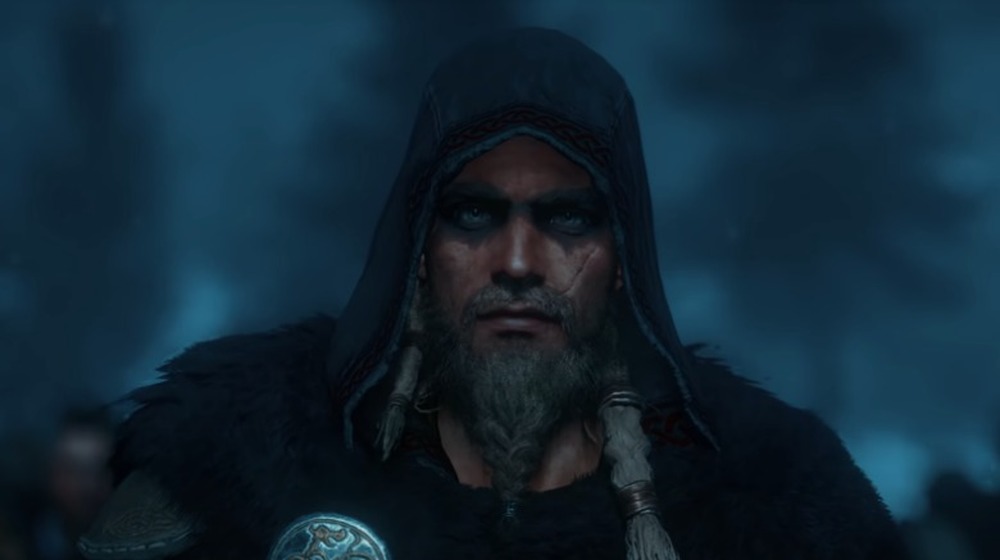 Oops. That’s the next ten years of Assassin’s Creed organised…
Oops. That’s the next ten years of Assassin’s Creed organised…
Whether we’ll see Layla and The Reader again is unclear but Rebecca, Shaun and Basim are clearly our modern day protagonists for the foreseeable. Basim’s first request is to meet Desmond’s dad William, the head of the Assassins, and who knows what his true purpose is. Desmond’s dad being picked off by Loki in the opener of next year’s Creed anyone? We might not even have to wait very long, given the amount of Valhalla DLC on the way. Nothing is true after all…
Have you found all of the Assassin’s Creed Valhalla legendary animals yet? If not then check out our guide and the video below.
Get the best gaming deals, reviews, product advice, competitions, unmissable gaming news and more!
Contact me with news and offers from other Future brandsReceive email from us on behalf of our trusted partners or sponsors
Louise Blain is a journalist and broadcaster specialising in gaming, technology, and entertainment. She is the presenter of BBC Radio 3’s monthly Sound of Gaming show and has a weekly consumer tech slot on BBC Radio Scotland. She can also be found on BBC Radio 4, BBC Five Live, Netflix UK’s YouTube Channel, and on The Evolution of Horror podcast. As well as her work on GamesRadar, Louise writes for NME, T3, and TechRadar. When she’s not working, you can probably find her watching horror movies or playing an Assassin’s Creed game and getting distracted by Photo Mode.
She is the presenter of BBC Radio 3’s monthly Sound of Gaming show and has a weekly consumer tech slot on BBC Radio Scotland. She can also be found on BBC Radio 4, BBC Five Live, Netflix UK’s YouTube Channel, and on The Evolution of Horror podcast. As well as her work on GamesRadar, Louise writes for NME, T3, and TechRadar. When she’s not working, you can probably find her watching horror movies or playing an Assassin’s Creed game and getting distracted by Photo Mode.
GamesRadar+ is part of Future plc, an international media group and leading digital publisher. Visit our corporate site .
©
Future Publishing Limited Quay House, The Ambury,
Bath
BA1 1UA. All rights reserved. England and Wales company registration number 2008885.
Dieses Ende hat Eivor nicht verdient
The Last Chapter ist in Annikas Augen kein würdiger Abschied für Eivor.
Vor wenigen Tagen erschien mit “The Last Chapter” das letzte Content-Update für Assassin’s Creed Valhalla. Nach den drei kostenpflichtigen DLCs Zorn der Druiden, Die Belagerung von Paris und Die Zeichen Ragnaröks bedeutet das gleichzeitig den wohlverdienten Ruhestand für das Spiel.
Aus diesem Grund, und weil bereits im Trailer von “neuen Ufern” die Rede ist, hatte ich klare Vorstellungen davon, was mich zum Ende wohl noch einmal erwarten wird: Eine Questreihe, die uns in ein anderes Gebiet schickt und Eivors Tod erklärt. Aber statt des erhofften, wehmütigen Abschieds, kehre ich Valhalla den Rücken, wie ich es damals begonnen habe: mit einer Enttäuschung.
Spoilerwarnung: Um über das Ende von Valhalla sprechen zu können, kommen wir um Spoiler zu The Last Chapter und dem Hauptspiel logischerweise nicht herum.
Annika Bavendiek
Für Annika gehört Valhalla zu den schlechteren Assassin’s Creed-Ablegern in ihrem persönlichen Fan-Ranking. Sie hatte durchaus Spaß mit dem Hauptspiel und den DLCs, ist aber auch froh, dass dieses Kapitel nun endet und es mit Mirage hoffentlich wieder besser läuft.
Eivor ließ mich durchhalten
Der Trailer zu The Last Chapter schaffte etwas, was ich kaum für möglich hielt: Er machte mich tatsächlich wehmütig, ja sogar etwas traurig, dass ich nun von Eivor Abschied nehmen muss. Denn auch wenn Valhalla mit seiner Wikinger-Thematik weniger meinen Geschmack traf und die vielen Probleme bei der Technik und dem Spieldesign (mehr dazu im Test) mich immer wieder nervten, habe ich meinen männlichen Eivor lieb gewonnen.
Denn auch wenn Valhalla mit seiner Wikinger-Thematik weniger meinen Geschmack traf und die vielen Probleme bei der Technik und dem Spieldesign (mehr dazu im Test) mich immer wieder nervten, habe ich meinen männlichen Eivor lieb gewonnen.
Die hübsche Open World ist natürlich auch ein Argument für das Spiel, kommt für mich aber nicht an das sonnig warme Griechenland aus AC Odyssey heran. Dass ich Valhalla nicht aufgegeben habe, verdanke ich daher in erster Linie Eivor mit seiner harten Schale, hinter der doch ein weicher Kern steckt. Denn auch wenn er Schlachten schlägt und Brandschatzt, tut er das zum Wohl seiner Liebsten.
Hier der besagte Trailer:
1:07
Assassin’s Creed Valhalla — Der Last Chapter-DLC schließt Eivors Story ab
Deshalb wünschte ich mir für meinen rauen Wikinger ein letztes kämpferisches Spektakel mit vielen Emotionen, vergleichbar mit dem traurigen Abschied von seiner Geliebten Randvi. Als Schauplatz kam für mich hier nur Vinland (die heutige USA) in Frage, um endlich die Geschichte hinter Eivors Tod zu erfahren, der dort viele Jahre später begraben liegt.
Umso mehr ärgere ich mich, dass er in der letzten Quest nun doch nicht das würdige Ende erhält, das ihm meiner Meinung nach zusteht. Natürlich spielt auch meine Erwartungshaltung eine Rolle, aber es gibt genug Faktoren, die auch abseits davon das letzte Kapitel zu einem lieblosen Abgang machen.
Sexismus-Probleme bei Ubisoft: Dem französischen Entwickler und Publisher wird seit Juli 2020 eine toxische Unternehmenskultur vorgeworfen. Darunter weitreichende Sexismus-Probleme, Frauenfeindlichkeit und Diskrimierung, die tief in der Firma verankert sein sollen. Zwar wurden seitens Ubisoft bereits Konsequenzen gezogen, bspw. Mitarbeiter der Führungsebene ausgetauscht und zu den Vorwürfen offen Stellung genommen, firmenintern werden diese Maßnahmen von vielen Mitarbeiter*innen jedoch als nicht ausreichend empfunden.
Nach dem Hauptspiel und all den DLCs, in denen Eivor immer eine Schlacht für seinen Clan zu schlagen hatte, steckt er in The Last Chapter in einer Identitätskrise. Nach einigen vergangenen Ingame-Jahren fühlt er sich lustlos und lässt sein altes Leben hinter sich.
Nach einigen vergangenen Ingame-Jahren fühlt er sich lustlos und lässt sein altes Leben hinter sich.
Als jemand, der immer ein festes Ziel vor Augen hatte, ergibt diese Suche nach etwas Neuem für Eivor durchaus Sinn. Allerdings werden wir mit diesen Gefühlen nur direkt zu Beginn der Quest konfrontiert, während die nachfolgende Spielstunde sich nur mit der ersten Konsequenz, also seinem Abschied befasst. Um dieses Handeln besser nachvollziehen zu können, brauche ich mehr Kontext und Zeit.
Nur stumpfes Abarbeiten: Vielmehr stört es mich aber, dass wir in Sachen Gameplay nichts von den “neuen Ufern” zu sehen bekommen. Statt den für Eivor so wichtigen Weg zumindest in einer spielerischen Kurzversion mitzuerleben, spielt sich The Last Chapter nur an altbekannten Orten ab. Dabei hüpfen wir ohne beschwerlichen Weg einfach per Schnellreise von A nach B, aktivieren ein Erinnerungsfragment und verabschieden uns so in kleinen Zwischensequenzen von altbekannten Charakteren wie König Harald.
Eivor schaut auf das Fragment, wie sich Annika die ganze Zeit fühlte: Enttäuscht und gelangweilt.
Theoretisch ist der Story-Fokus auf das Wiedersehen alter Gefährten ein toller Ansatz, der uns so ein wenig ihre und auch unsere Entwicklung aufzeigt. Allerdings verpufft dieser Effekt, da mir abgesehen von König Alfred keiner der flachen Charaktere richtig in Erinnerung geblieben ist. Hier hätte ich stattdessen lieber den emotionalen Abschied von noch wichtigeren Personen wie Randvi und Sigurd, Eivors Bruder im Geiste, miterlebt.
Außerdem frage ich mich, warum Eivor auf alles so schulterzuckend reagiert. Er könnte zum Beispiel auf König Haralds Wunsch hin mit nach Island reisen, um zusammen einer befreundeten Siedlung zu helfen, die in Gefahr ist. Das wäre der perfekte Schritt Richtung “neuer Ufer”, nach denen sich Eivor sehnt. Jedoch lehnt er diese Chance ab, weil er “keine ausgetretenen Wege beschreiten will”. Dabei sagt sogar Sigurd, der ihn in dieser Sequenz begleitet, dass dieses Angebot Schicksal sei.
Dem letzten Kapitel hätte es gut getan, wenn wir mit Eivor immerhin ein kleines neues Gebiet erkunden dürften, um wirklich das Gefühl eines Aufbruchs zu spüren. Wir bekommen jedoch nur zu sehen, wie Eivor sich zusammen mit Odin auf einem Bötchen still und leise davon macht, ohne zu wissen, was überhaupt sein Ziel ist. Im Anschluss bekommen wir die zwei zwar noch einmal bei der Hütte aus dem Gegenwarts-Abschnitt zu sehen, was aber dazwischen alles passiert, bleibt unklar.
Mehr Fragen als Antworten
So viel verschenktes Potenzial und Unklarheit verderben mir den Spaß an diesem Abschied, der AC Valhalla-typisch noch durch Bugs noch weiter geschmälert wurde. Bestes Beispiel ist der Umhang, den Eivor in den Zwischensequenzen trägt. Diesen habe ich ihm nicht angelegt. Mal ganz zu schweigen davon, dass seine Federpracht nicht rabenschwarz, sondern kunterbunt ist, was mich Eivor in seiner Situation nicht ernst nehmen ließ:
Der bunte Federschmuck ist schick, riss mich aber in The Last Chapter immer wieder raus.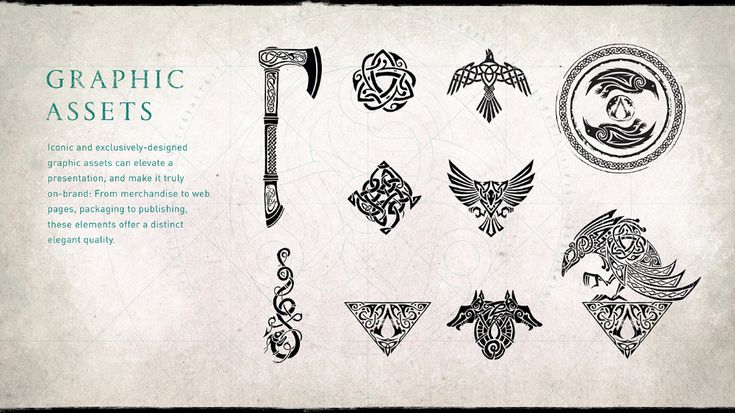
Statt eines würdigen Abschieds, der am Ende immerhin noch ein paar Wogen zum allgemein enttäuschenden Valhalla glättet, hat Ubisoft das Spiel so in meinen Augen einfach unliebsam zu Grabe getragen. Das “Verabschiede dich, um zu fernen Ufern aufzubrechen, zu neuen Abenteuern.” gilt demnach nicht Eivor, sondern uns, mit Blick auf Assassin’s Creed Mirage. Kein Wunder also, dass ich noch nie so erleichtert war, ein Assassin’s Creed-Spiel von der Konsole zu kicken.
Meine letzte Hoffnung bleibt, dass Eivors Geschichte irgendwann in der übergreifenden AC-Handlung noch einmal am Rande aufgegriffen wird. Vielleicht beschert uns ja Mirage, in dem Basim aus Valhalla die Hauptrolle spielt, ein paar Hintergrundinformationen, die meinen Blick auf The Last Chapter etwas versöhnlicher werden lassen. Meinem durch Valhalla gebrochenem Fan-Herz für Eivor würde es gut tun.
Aber wie seht ihr das? Habt ihr auch mehr von The Last Chapter erwartet?
Assassin’s Creed Valhalla – Die Belagerung Von Paris for XOne — price history, screenshots, sales • Deutschland
Platform
PlayStation 5
PlayStation 4
PlayStation 3
PlayStation Vita
PlayStation Portable
Xbox One
Xbox 360
Nintendo Switch
Wii U
Nintendo 3DS
Epic Games Store
iOS
nine0003
Deutschland
Collections
All discounts
Discounts for the last 24 hours
Discounts for PS+/Gold
PS+Extra
PS+ Premium
Most anticipated discounts
Most Anticipated Games
Lowest prices
Cheaper than ever
The biggest discounts
Best by Metacritic
New releases
Upcoming releases
More expensive games
Game Pass
Series X|S Optimized
PS Now
PS5-only games
EA Play
New items on the site
VR
Avatars
Free games
nine0003
-
Xbox One
-
Assassin’s Creed Valhalla – Die Belagerung Von Paris
Deutschland
Show screenshots and videos ↓
⤷ Assassin’s Creed Valhalla
€12.49
−50%
24.99 €
Price change history for the game
(Microsoft Store)
Lowest price: €12. 49
49
,
Gold:
€12.49
— Release date:
August 12, 2021
Description
Durchlebe die ambitionierteste Schlacht in der Geschichte der Wikinger. Segle in das vom Krieg zerrissene Frankenreich und belagere die Festungsstadt Paris. Kämpfe gegen die gnadenlosen Truppen von Karl dem Dicken und schmiede strategische Bündnisse, um die Zukunft deines Clans zu sichern. nine0003
Setze deine Wikingersaga mit «Die Belagerung von Paris» fort:
• Infiltriere die Festungsmauern vom Paris des 9. Jahrhunderts.
• Unterstütze den Widerstand gegen das Kaiserreich der Karolinger.
• Erkunde die fruchtbare fränkische Landschaft und segle auf der legendären Seine.
• Eliminiere wichtige Feinde in Quests mit offenem Ende.
Upgrade zum Season Pass und hole dir die Erweiterungen «Der Zorn der Druiden» und «Die Belagerung von Paris» SOWIE die Bonusquest «Die Legende von Beowulf»! nine0003
Information taken from the official Microsoft Store website, all rights reserved.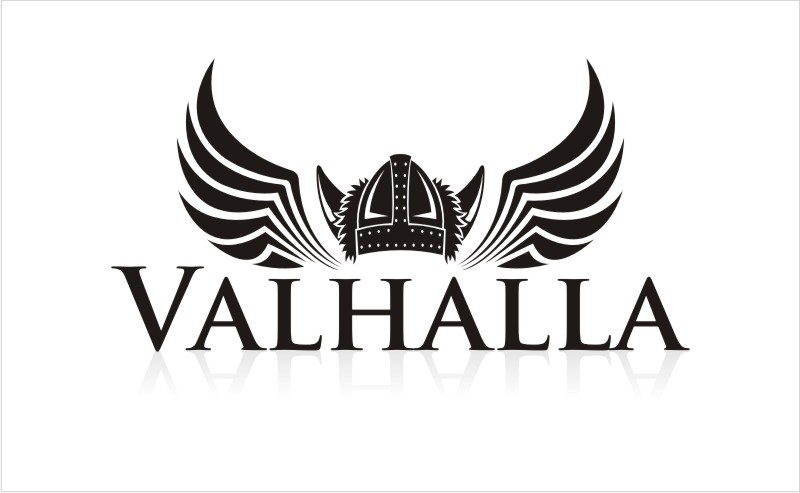
Cheats for Assassin’s Creed: Valhalla
Everybody
Unlockers
Editors
Save
tables
Trainers
nine0003
|
Saves
Assassin’s Creed: Valhalla «Save — Quick start, whole map open»
|
Unlockers
Assassin’s Creed Valhalla «DLC Unlocker — Add-on Unlocker» [1.6.0] (License)
|
Spreadsheets
Assassin’s Creed: Valhalla «Spreadsheet for Cheat Engine — Inventory Editor» [1. 6.2 Fixed] {HK26 / Compilation}
6.2 Fixed] {HK26 / Compilation}
|
Tables
Assassin’s Creed: Valhalla «Table for Cheat Engine» [1.6.2] {aSwedishMagyar}
|
Trainers
Assassin’s Creed: Valhalla «Trainer +20» [1.0.2 — 1.6.2] {FLiNG}
|
Spreadsheets
Assassin’s Creed: Valhalla «Spreadsheet for Cheat Engine — Inventory Editor» [1.6.2 Fixed] {cievic / Compilation}
|
Tables
Assassin’s Creed: Valhalla «Table for Cheat Engine» [1.6.1] {Saug}
|
Spreadsheets
Assassin’s Creed: Valhalla «Cheat Engine Spreadsheet» [UPD: 03.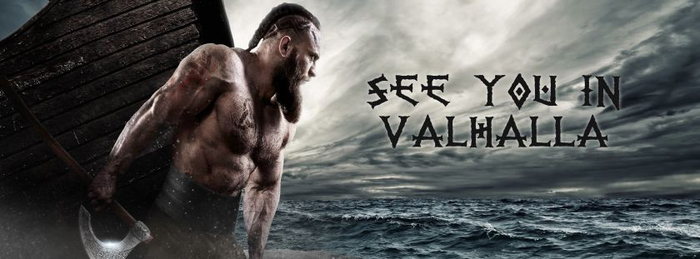 11.2022] {MaW}
11.2022] {MaW}
|
Spreadsheets
Assassin’s Creed: Valhalla «Spreadsheet for Cheat Engine» [UPD: 01.10.2022] {Paul44}
|
Tables
Assassin’s Creed: Valhalla: Table for Cheat Engine [1.5.3] {bbfox}
|
Trainers
Assassin’s Creed: Valhalla «Trainer +19» [1.5.3/UPLAY] {LinGon}
|
Saves
Assassin’s Creed: Valhalla: Save/SaveGame (Save Collection — Easy Start)
|
Saves
Assassin’s Creed: Valhalla: Save/SaveGame (Main story completed, DLC intact) [1.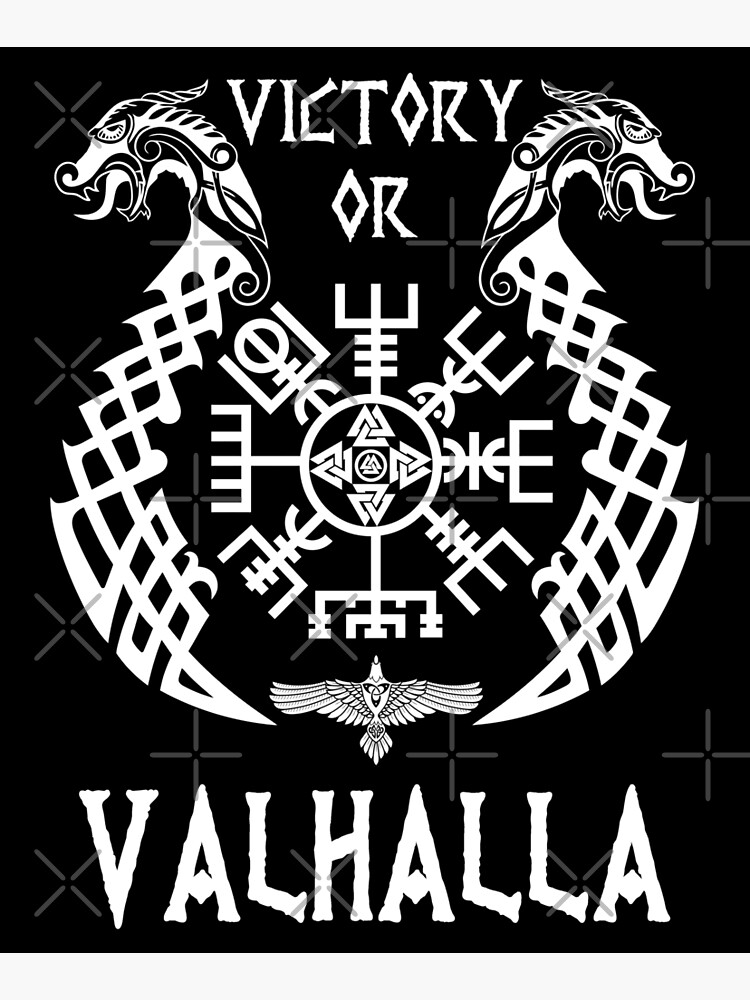 2.0 / 1.3.2 / 1.4.x]
2.0 / 1.3.2 / 1.4.x]
|
Saves
Assassin’s Creed: Valhalla: Save/SaveGame (After arriving in England, the whole map is open)
|
Saves
Assassin’s Creed: Valhalla: Save/SaveGame (Game 100% cleared + all DLCs, all collected)
|
Tables
Assassin’s Creed: Valhalla: Table for Cheat Engine — Inventory Editor [1.5.0/1.5.0.1 + bypass] {N3M3515/DDos96/STN}
|
Saves
Assassin’s Creed: Valhalla: Save/SaveGame (Legendary items, completed the story) [EMPRESS: 1.1.2]
|
Tables
Assassin’s Creed: Valhalla: Improved table for Cheat Engine — Inventory Editor [1.
